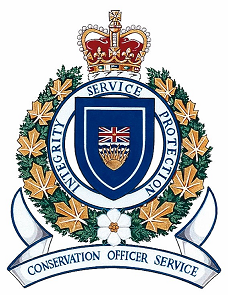Early detection lake monitoring
Monitoring is critical for early detection of new invasive species incursions in B.C. and is an important first step in the Provincial Early Detection Rapid Response (EDRR) Plan (PDF). Zebra (Dreissena polymorpha) and quagga (Dreissena rostriformis bugensis) mussels (hereafter referred to as Dreissenid), are two freshwater invasive species that are not currently found in B.C. but pose significant environmental and economic risks if they were to be introduced. Learn more about zebra and quagga mussels.
The Province has been conducting lake monitoring for zebra and quagga mussels since 2011. B.C. is one of the many jurisdictions across North America conducting monitoring and active prevention efforts for invasive mussels. The 2023 British Columbia Dreissenid Mussel Lake Monitoring Field Protocol details the provincial protocols used for early detection lake monitoring for invasive mussels. The protocol outlines provincial standards for the collection and preservation of water samples which are then analyzed by a designated lab for the presence of invasive mussel larvae.
In February 2018 the Habitat Conservation Trust Foundation (HCTF) announced a grant program in partnership with the B.C. Ministry of Environment and Climate Change Strategy. The granting program is designed to fund community efforts to monitor lakes in B.C. (using the provincial protocol above) for the presence of invasive freshwater mussels. All sampling is conducted following the provincial lake monitoring field protocol (see above) and samples are sent to a designated lab for analysis.
For the 2022 season, sampling was carried out by both partner organizations and Ministry staff from early June to October. A total of 9 grants were administered by the Habitat Conservation Trust Foundation with funding provided by the Ministry of Environment and Climate Change Strategy and Fisheries and Oceans Canada for the collection of water samples in priority waterbodies across the province. The grant recipients were: Coastal Invasive Species Committee (CISC), Central Kootenay Invasive Species Society (CKISS), Christina Lake Stewardship Society (CLSS), Columbia-Shuswap Invasive Species Society (CSISS), East Kootenay Invasive Species Council (EKISC), Fraser Valley Invasive Species Society (FVISS), Invasive Species Council of British Columbia (ISCBC), Lillooet Regional Invasive Species Society (LRISS), and the Okanagan and Similkameen Invasive Species Society (OASISS). A total of 830 water samples were collected from 78 priority waterbodies throughout BC. All samples tested negative for invasive mussels.

